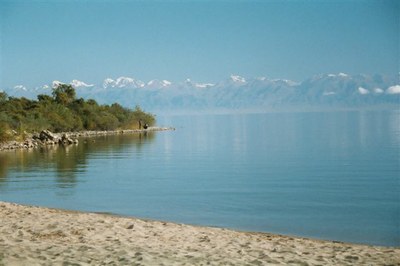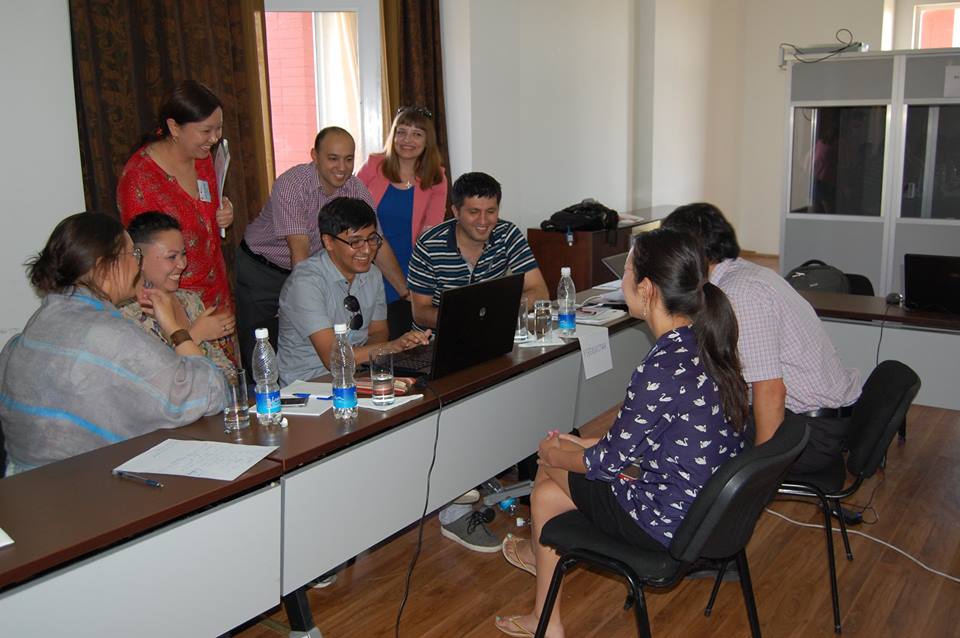SIPRI co-hosts events in Jordan on militarization and masculinity
On 9 October 2025, SIPRI co-organized two events in Amman, Jordan, to mark the 25th anniversary of the women, peace and security agenda.
On 9 October 2025, SIPRI co-organized two events in Amman, Jordan, to mark the 25th anniversary of the women, peace and security agenda.
On 4 February, SIPRI and the Embassy of Ireland in Sweden hosted a panel on the critical yet often unrecognized role that women play in conflict resolution.
As the 24th anniversary of United Nations Security Council Resolution 1325 on women, peace and security (WPS) approaches, SIPRI is pleased to share its recent work on the WPS agenda.
On 29–30 June, Sigrún Rawet, SIPRI Deputy Director, will join a virtual Lancet–Swedish Institute for Global Health Transformation (SIGHT) Commission meeting, focusing on the impact of coronavirus disease 2019 (COVID-19) on the Commission’s work.
On 20–21 February, SIPRI and the Swedish Ministry for Foreign Affairs co-hosted a thematic and regional consultation on the 2020 review of the United Nations Peacebuilding Architecture.
On 10 December, SIPRI co-hosted a regional expert level discussion event on ‘North East Asian Countries’ Contributions to the Women, Peace and Security (WPS) Agenda’ in Beijing.
On 28 November, SIPRI co-organized an event on the implementation of the humanitarian, development and peacebuilding nexus at the Swedish International Development Cooperation Agency’s (Sida) headquarters.
On 12 April, SIPRI, in cooperation with the Swedish Police Authority, organized a seminar discussion on ‘Policing Organized Crime in the Context of UN Peace Operations’.
SIPRI co-hosted the third annual Life in Kyrgyzstan (LiK) Conference in Bishkek on 12–13 October 2017. During the two-days, the conference was attended by more than 110 participants, representing government agencies, academia, civil society, international organizations, independent researchers and the private sector.
On 11–18 June, SIPRI and the University of Central Asia’s Institute of Public Policy and Administration (UCA) hosted a summer school titled ‘Social Cohesion: Concept, Implementation and Evaluation’.
SIPRI Senior Researcher Dr Damir Esenaliev presented work on peacebuilding impact evaluation and social cohesion at four events in Washington D.C.
SIPRI is pleased to announce the third annual Life in Kyrgyzstan Conference to take place in Bishkek on 12–13 October 2017.
SIPRI and the University of Central Asia are pleased to invite applicants to a summer school on social cohesion in Kyrgyzstan.
Stockholm International Peace Research Institute (SIPRI) has completed the project 'Gender and Employment in Central Asia', implemented during 2013–2015 with the University of Central Asia, Hannover University, the International Security and Development Centre (ISDC), Vanderbilt University and Manchester University.
SIPRI co-hosted the inaugural Life in Kyrgyzstan Conference in Bishkek from 1-2 October 2015 together with the University of Central Asia (UCA), the International Security and Development Center (ISDC), and the World Bank. During the two-day conference, more than 40 international and regional speakers gathered to exchange research and promote evidence-based policymaking.
 In June 2015 SIPRI and the Institute of Public Policy and Administration of the University of Central Asia (UCA), the International Security and Development Center (ISDC) and the United Nations University Maastricht Economic and Social Research Institute on Innovation and Technology (UNU-MERIT) will offer a Summer School programme in Kyrgyzstan entitled ‘Impact Evaluation Methods in Central Asia’.
In June 2015 SIPRI and the Institute of Public Policy and Administration of the University of Central Asia (UCA), the International Security and Development Center (ISDC) and the United Nations University Maastricht Economic and Social Research Institute on Innovation and Technology (UNU-MERIT) will offer a Summer School programme in Kyrgyzstan entitled ‘Impact Evaluation Methods in Central Asia’.

From 13–25 July SIPRI and the University of Central Asia's Institute of Public Policy and Administration (IPPA) conducted a summer school on 'Labor Markets in Central Asia' in Issyk Kul, Kyrgyzstan.
The summer school was a part of the 'Gender and Employment in Central Asia' research project, which is funded by the IZA/DFID Growth and Labour Markets in Low Income Countries Programme (GLM | LIC).
SIPRI and the University of Central Asia will participate as research partners in a new research project entitled Social Cohesion Through Community-Based Development.
The project, which is funded by the World Bank and the Aga Khan Foundation, will be carried out in Kyrgyzstan with a budget of $3 million over four years, of which SIPRI will receive $605 000.
In July 2014 SIPRI and the Institute of Public Policy and Administration of the University of Central Asia (UCA) will offer a Summer School programme in Kyrgyzstan entitled ‘Labour Markets in Central Asia’.
The objective of the Summer School is to teach the basics of labour economics, discuss a range of labour market issues in Central Asia and beyond, and introduce relevant research and policy evaluation methods.
In recent years, increased focus has been placed on the ‘triple nexus’, a consensus building on the interdependencies and complementarities that exist between humanitarian, development and peacebuilding work. The event will discuss institutional responses that apply nexus approaches and principles, reinforced with case studies and experiences from the field.
Stockholm International Peace Research Institute (SIPRI) together with the University of Central Asia’s Institute of Public Policy and Administration (UCA IPPA), the United Nations University–Maastricht Economic and Social Research Institute on Innovation and Technology (UNU–MERIT) and the International Security and Development Center (ISDC) held a joint summer school on ‘Impact Evaluation Methods in Central Asia’ from the 21–28 June 2015 in Issyk-Kul, Kyrgyzstan.
This event will feature discussions and knowledge-sharing on impact evaluation practices, research methodologies and experiences in policy influence in fragile states.